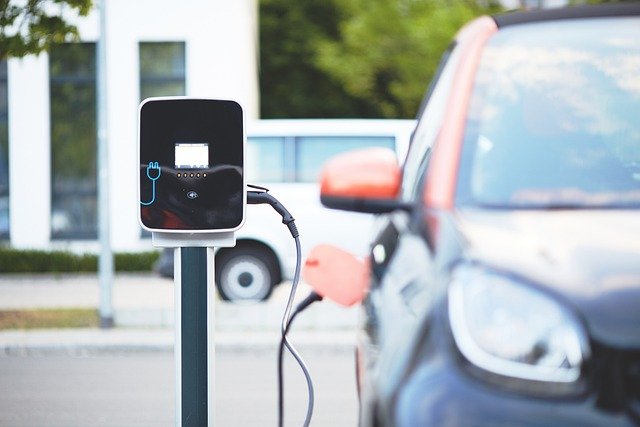Decoding EV Charging Solutions: A Complete Guide to Home Systems and Business Opportunities
As the world transitions from fossil fuels to more sustainable energy sources, electric vehicles (EVs) have been at the forefront of this shift. With governments across the globe setting ambitious targets to phase out petrol and diesel cars, the demand for efficient and accessible electric vehicle charging solutions has never been more crucial. This comprehensive guide will explore various aspects of EV charging, including home chargers, manufacturers, and the emerging EV charging business.

How Electric Car Chargers Made Easy Can Transform Your Daily Routine
Modern electric car chargers have evolved far beyond the basic plug-and-play devices of early EV adoption. Today’s charging solutions incorporate smart technology, allowing users to monitor charging status, schedule sessions during off-peak hours, and even integrate with renewable energy systems. The simplicity of contemporary charging systems means that most EV owners can easily manage their vehicle’s power needs without technical expertise.
Smart charging features include smartphone app integration, automatic payment processing, and real-time energy monitoring. These innovations have eliminated many of the complexities that once made EV ownership seem daunting. Load balancing technology ensures that home electrical systems aren’t overwhelmed, whilst programmable timers help users take advantage of cheaper electricity rates during specific hours.
Understanding Home Charging Convenience for UK Households
Home charging represents the most practical solution for the majority of UK EV owners, offering unparalleled convenience and cost-effectiveness. Residential charging typically occurs overnight when electricity demand is lower and rates are often reduced. This approach eliminates the need for frequent visits to public charging stations and ensures vehicles are ready each morning with a full battery.
The installation process for home charging points has become increasingly streamlined, with certified electricians able to complete most installations within a few hours. Government grants and incentives continue to support residential charging infrastructure, making home systems more accessible to a broader range of households. Tethered and untethered options provide flexibility for different property types and user preferences.
Exploring the EV Charging Business Boom Across Commercial Sectors
The commercial charging sector presents significant opportunities as businesses recognise the value of providing charging facilities for employees, customers, and fleet vehicles. Retail locations, office complexes, and hospitality venues are increasingly installing charging infrastructure to attract environmentally conscious consumers and support their sustainability commitments.
Workplace charging has emerged as a particularly strong growth area, with employers using charging benefits as staff retention tools whilst demonstrating corporate environmental responsibility. Fleet operators are investing heavily in dedicated charging infrastructure to support their transition to electric vehicles, creating substantial market opportunities for charging solution providers and installation specialists.
Innovative Charging Solutions Shaping the Future of EV Infrastructure
Technology advancement continues to drive innovation in charging solutions, with developments in ultra-rapid charging, wireless charging, and grid integration capabilities. Vehicle-to-grid technology allows EVs to contribute power back to the electrical grid during peak demand periods, creating additional value for EV owners and supporting grid stability.
Solar panel integration and battery storage systems are becoming increasingly common components of comprehensive charging solutions. These innovations enable users to charge their vehicles using renewable energy whilst reducing dependence on grid electricity. Bidirectional charging capabilities transform electric vehicles into mobile energy storage units, supporting both household and grid energy needs.
Requirements for Fast and Efficient Installation of Charging Systems
Professional installation ensures optimal performance, safety compliance, and warranty protection for charging systems. Qualified electricians assess electrical capacity, install appropriate safety equipment, and configure systems according to local regulations and manufacturer specifications. The installation process typically includes electrical supply upgrades, protective equipment installation, and system commissioning.
Planning considerations include electrical supply capacity, charging location accessibility, and future expansion possibilities. Many installations require electrical supply upgrades to support higher power charging rates. Local authority permissions may be necessary for certain installations, particularly in conservation areas or listed buildings.
| Provider | Service Type | Installation Cost Range | Monthly/Usage Costs |
|---|---|---|---|
| Pod Point | Home & Commercial | £800-£1,500 | £0.30-£0.35 per kWh |
| EO Charging | Smart Home Systems | £900-£1,800 | Variable tariff options |
| BP Pulse | Public & Commercial | £1,200-£3,000 | £0.44-£0.69 per kWh |
| Char.gy | Residential Solutions | £700-£1,400 | Electricity cost + 15% |
Prices, rates, or cost estimates mentioned in this article are based on the latest available information but may change over time. Independent research is advised before making financial decisions.
The charging infrastructure landscape continues evolving rapidly, with new technologies and business models emerging regularly. Government support through grants, regulations, and strategic planning provides a foundation for sustained growth in the sector. As battery technology improves and charging speeds increase, the convenience gap between electric and conventional vehicles continues to narrow.
Understanding the various charging solutions available empowers both consumers and businesses to make informed decisions about their electric vehicle infrastructure needs. Whether pursuing home charging convenience or exploring commercial opportunities, the current market offers numerous pathways for participation in the electric vehicle revolution that is reshaping transportation across the UK.




